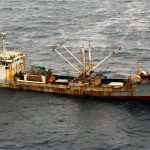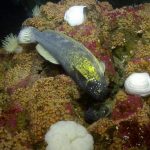Source: Mongabay
Author: Shreya Dasgupta
- Creatures living in deep-sea hydrothermal vents lead a unique life that researchers are only now beginning to understand. Yet these animals are at risk of disappearing because of deep-sea mining before we even learn about them.
- A deep-sea hydrothermal vent mollusk, the scaly-foot snail (Chrysomallon squamiferum), for example, debuted as endangered on the IUCN Red List this year because of threats from mining.
- Mongabay spoke with deep-sea biologist Chong Chen, who has been assessing deep-sea hydrothermal vent species for the IUCN Red List, about his work and why listing these species on the IUCN Red List matters.
Continue reading here.








